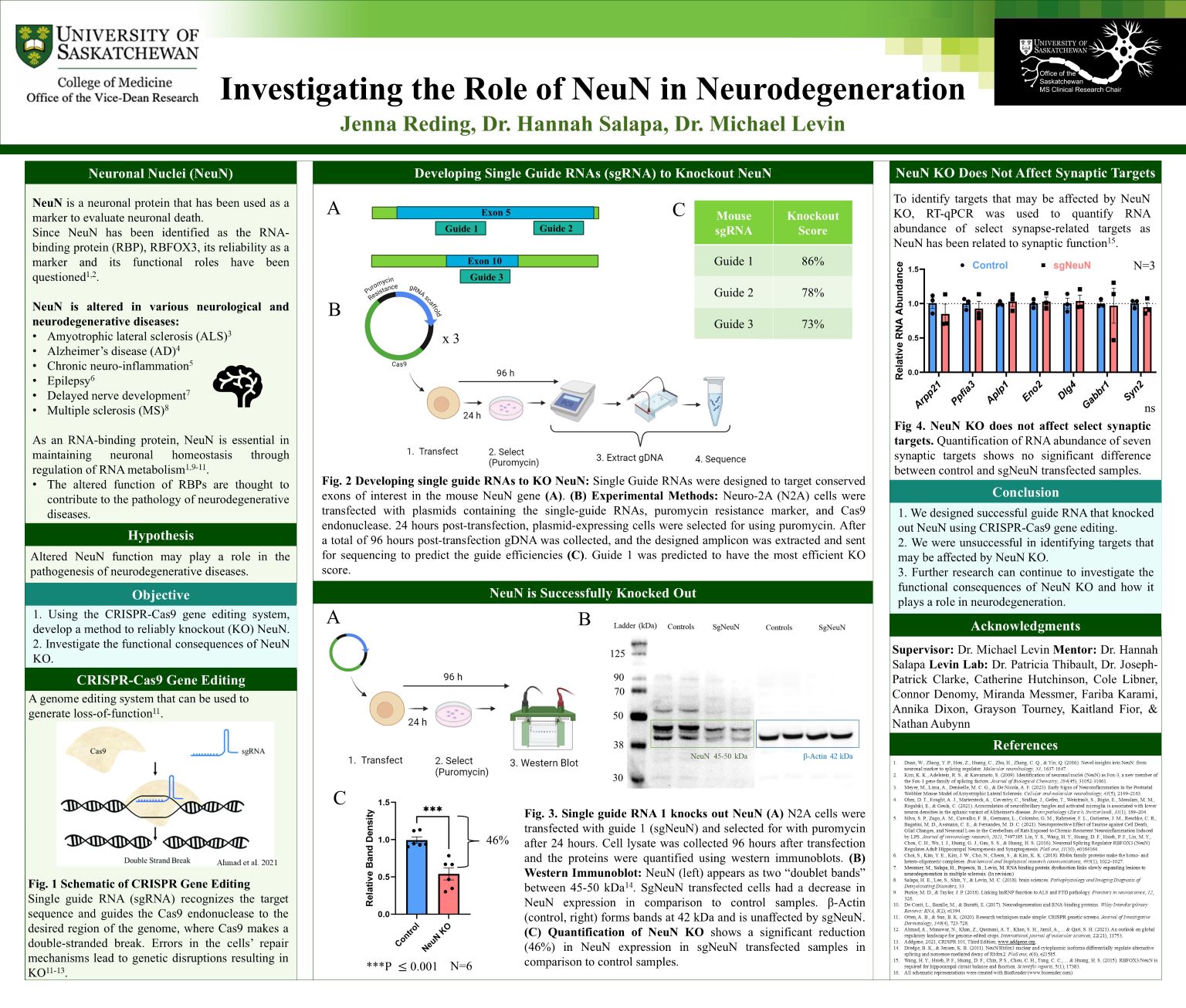
Investigating the Role of NeuN in Neurodegeneration
Jenna Reding
Neuronal Nuclei (NeuN), also known as RNA binding fox-1 homolog 3 (RBFOX3), is an RNA-binding protein that has been used as a neuron-specific marker to evaluate neuronal death. NeuN contributes to neuronal homeostasis through the regulation of RNA metabolism and is thought to regulate synaptic function. Studies have found that NeuN is altered in Alzheimer’s Disease, Amyotrophic Lateral Sclerosis, and Multiple Sclerosis, indicating that NeuN dysfunction may be related to neurodegeneration. To investigate the role of NeuN in the pathogenesis of neurodegenerative diseases, we established a NeuN knockout (KO) model in a neuronal cell line using CRISPR-Cas. We designed and tested three single guide RNAs (sgRNAs) targeting NeuN in neuronal cells to determine their KO efficiency. The first sgRNA (sgNeuN1) had an 86% KO efficiency compared to 78% and 73% for the other sgRNAs. The first sgRNA demonstrated successful NeuN KO (~46%, ***P ≤ 0.001). Next, we investigated how NeuN KO might impact seven synaptic RNA targets using RT-qPCR; we found that NeuN KO did not change the abundance of any, suggesting that NeuN affects synapses in another mechanism. Our research provides a basis for further investigation into the functional consequences of NeuN and how it may contribute to neurodegeneration.
